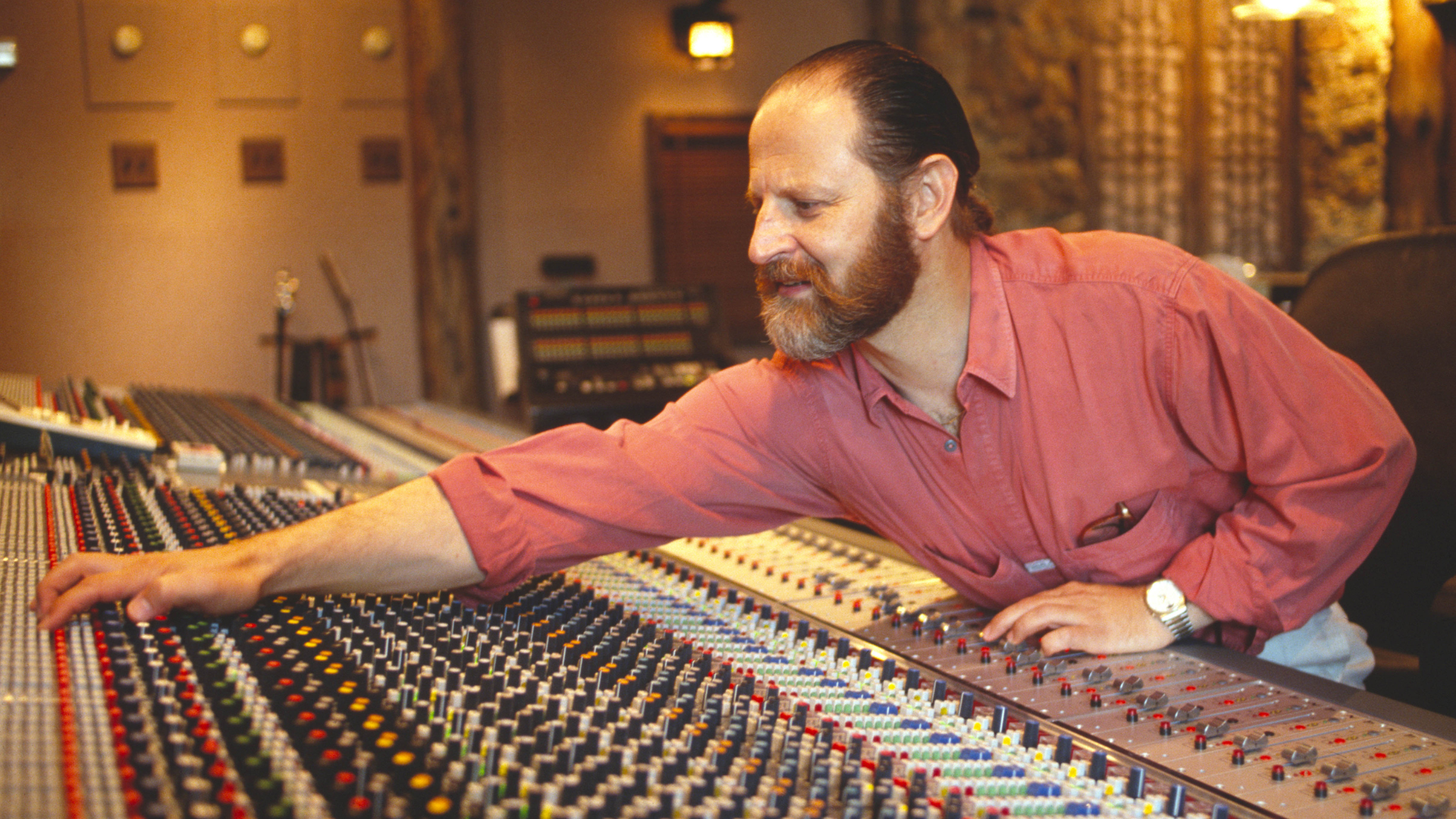“Who knows?! There are tapes that I would love to get my hands on…”: Eddie Kramer isn’t ruling out using Beatles-like AI techniques to restore more lost Jimi Hendrix tapes
The South African producer and engineer collaborated intimately with Hendrix in the ‘60s and has since worked on numerous posthumous projects. Now he says he’s open to embracing AI to add to the guitarist’s legacy

The AI-assisted final Beatles song may have divided the music industry earlier this year, but legendary producer Eddie Kramer has said he isn’t opposed to opting for a similar approach with Hendrix tapes.
Talking on The Vinyl Guide podcast, Kramer waxed lyrical on the advancement of new technologies like those recently utilised by the two living Beatles. It’s lined up the possibility for similar projects with both studio and live Hendrix recordings.
“I’m sure if we found another tape where Jimi’s voice is buried, I know I could use something similar,” he says (nice spot, MusicRadar). “I have used [the technology] before but now it’s going to be on a much higher-level.
“There are tapes that I would love to get my hands on with John [McDermott] and Janie [Hendrix] and say, ‘Hey, maybe we can do X, or Y.’”
Pressed if a new release was around the corner, Kramer responded: “I would hesitate to use ‘around the corner’ because that corner could be quite lengthy, [but] hopefully, yes.”
By pushing the limits of what technology can do with cassette demos, the final Beatles song could start something of a snowball effect across the industry. Entitled Now and Then, the lost Fab Four track was released back in November after new technologies allowed for precise instrument and vocal isolation.
The technology allowed Paul McCartney and Ringo Star to separate the vocals and instrumentation John Lennon had demoed in the '70s, pairing them with guitar parts George Harrison had recorded in 1995. It’s important to note, however, that Kramer is wary of using the term ‘AI’ in this context.
Get The Pick Newsletter
All the latest guitar news, interviews, lessons, reviews, deals and more, direct to your inbox!
He says: “When one uses the phrase ‘AI’, it is really advanced digital manipulation, and now the technology has become so evolved that here is a cassette tape of John [Lennon] playing piano, and now they are able to isolate the voice.

“We have always had something similar, but now as the technology has expanded [that] we are able to become quite clever about the quality that remains thereafter. If it requires some kind of AI manipulation, okay, that’s fine.”
Jimi Hendrix only released four studio albums in his lifetime, including three with The Jimi Hendrix Experience and one with Band of Gypsys in 1970. His posthumous discography, meanwhile, has been steadily growing since 1971’s The Cry of Love.
The latest, 2018's Valleys of Neptune, features 12 previously unreleased, albeit unfinished studio recordings. They were captured around 1969 as Hendrix began experimenting at his newly built Electric Ladyland Studios in Greenwich Village, New York. Many of these tracks had been released in some form or another previously, but improving technologies had inspired Kramer and co-producer Chas Chandler to revisit the tapes.
Kramer’s latest Hendrix project saw the South African producer tidying up a previously unheard recording of the guitarist performing at the Hollywood Bowl in August ’67. Whilst that project didn’t need AI, he’s hinted that a rumoured recording of Hendrix, Jim Morrison and Janis Joplin captured at a New York venue might need such treatment.
“Originally it was called the Village Barn and then it became The Generation nightclub that Jimi used to go down and jam a lot in,” Kramer says of the recording’s back-story. “Then it became the Electric Lady. But who knows?! Somebody has got a cassette somewhere! Tell them to contact me and we’ll fix it!”
It’s live recordings like that much-whispered-about jam session that Kramer feels are more likely to surface in future. Abe Jacob, Hendrix’s front-of-house engineer, was known to record his sets, which was the case for the Hollywood Bowl show.
“Some guy had a tape machine and was running it off the console and whoever was doing the front-of-house put it together and the stereo out of the board fed into the machine.”
Head to Spotify to listen to the full podcast, which includes further discussions about Hendrix, as well as Led Zeppelin II.
A freelance writer with a penchant for music that gets weird, Phil is a regular contributor to Prog, Guitar World, and Total Guitar magazines and is especially keen on shining a light on unknown artists. Outside of the journalism realm, you can find him writing angular riffs in progressive metal band, Prognosis, in which he slings an 8-string Strandberg Boden Original, churning that low string through a variety of tunings. He's also a published author and is currently penning his debut novel which chucks fantasy, mythology and humanity into a great big melting pot.











